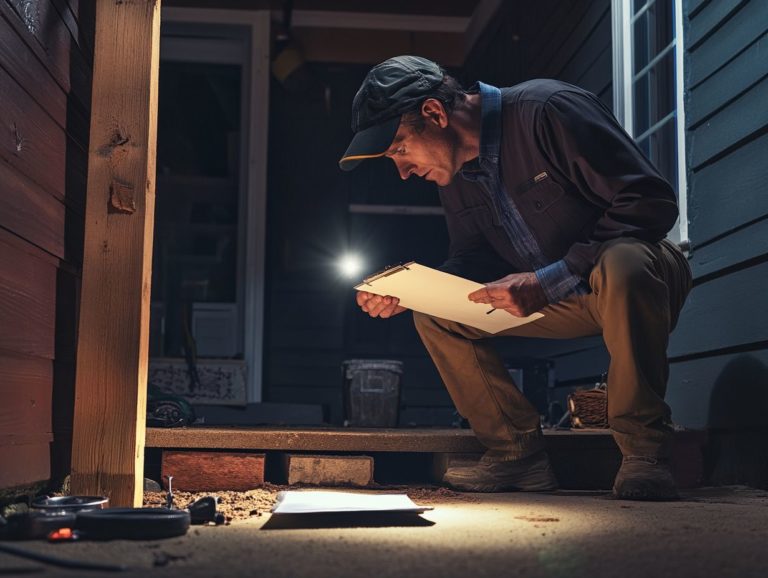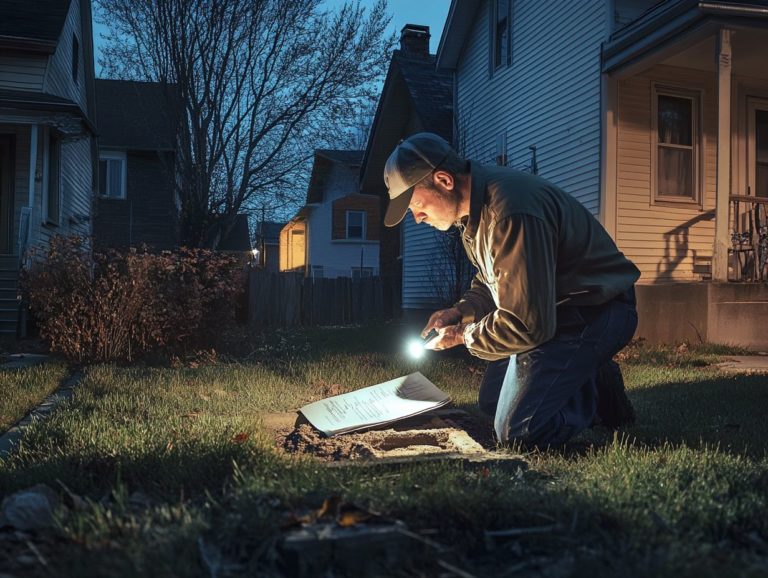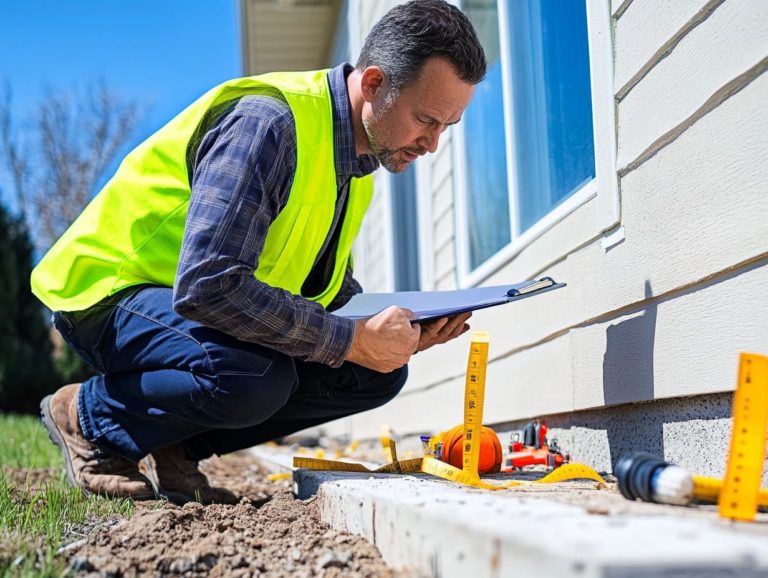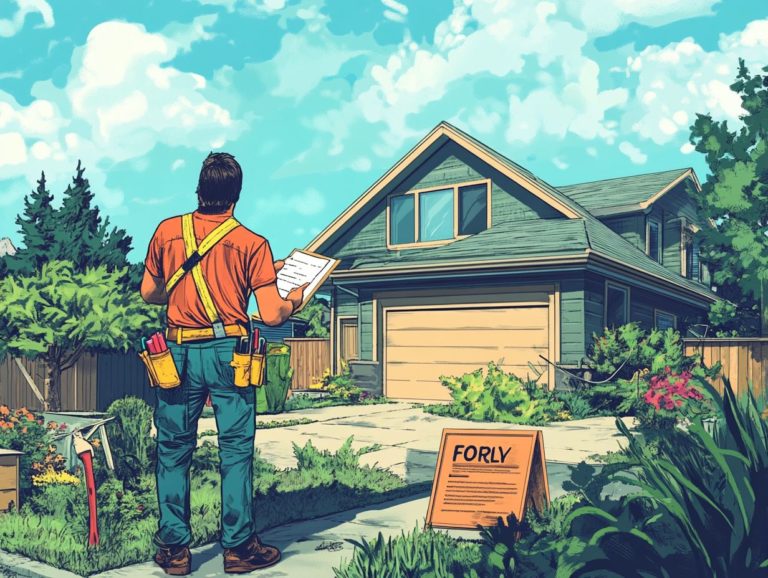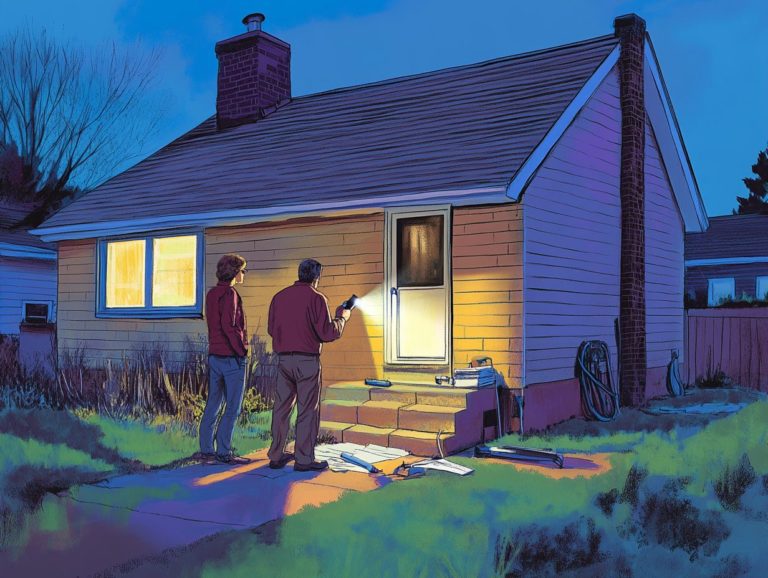How to Avoid Common Home Inspection Errors
Buying a home is one of the most significant decisions you’ll ever face, and a comprehensive home inspection is essential for ensuring your investment remains secure.
Yet, it’s all too easy for mistakes to slip through the cracks, potentially leading to costly repercussions later on.
This article delves into the necessity of home inspections, highlights common pitfalls, and offers practical advice to help you steer clear of them. It also helps you choose a qualified inspector and outlines the steps to take if issues arise.
As you read on, you’ll arm yourself with the knowledge needed to navigate the home-buying process with confidence and ease.
Contents
- Key Takeaways:
- The Importance of Home Inspections
- Common Errors in Home Inspections
- Tips for Avoiding Home Inspection Errors
- Choosing a Qualified Home Inspector
- What to Do if an Error is Found
- Frequently Asked Questions
- What are common home inspection errors and how can I avoid them?
- How can I ensure my home inspector is qualified and experienced?
- What should I do if I think my home inspector missed something?
- What areas are often overlooked during a home inspection?
- What red flags should I watch for during a home inspection?
- Can I attend the home inspection and ask questions?
Key Takeaways:
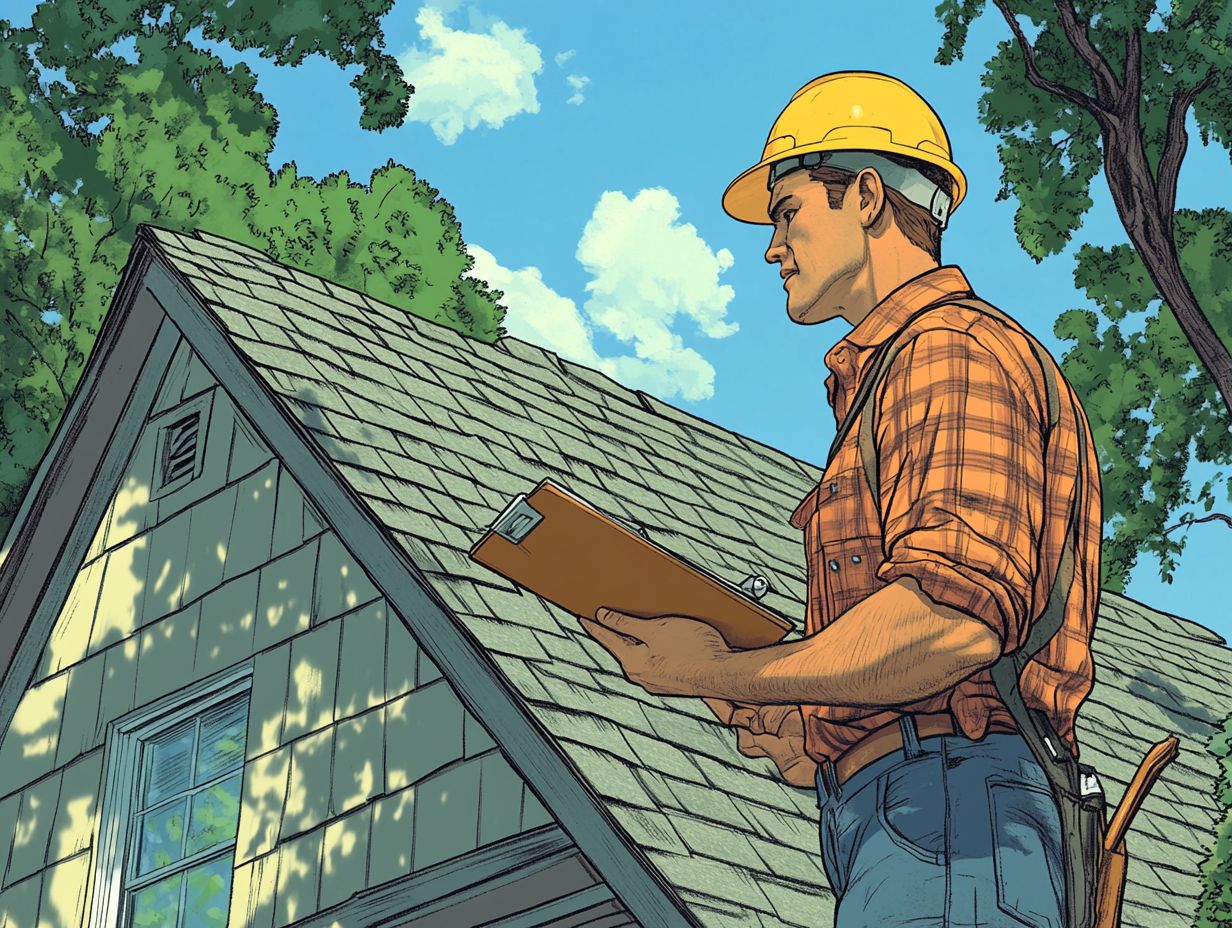
Home inspections are crucial in identifying potential problems and ensuring the safety and value of a property.
Common errors in home inspections can lead to costly consequences.
To avoid errors, homeowners should prepare their property and communicate effectively with their inspector.
The Importance of Home Inspections
Home inspections are important in the real estate transaction process, allowing you, as both a homebuyer or seller, to gain a comprehensive understanding of the property’s condition.
A certified home inspector will meticulously evaluate key elements like structural integrity, plumbing systems, electrical systems, and heating, ventilation, and air conditioning (HVAC) systems, delivering an inspection report that outlines potential issues and necessary repairs.
This proactive approach helps prevent safety hazards and saves you from costly repairs.
In essence, home inspections are a critical step that gives you the power to make informed decisions and enhances the appeal of your property.
Why Home Inspections are Necessary
Home inspections are essential for both buyers and sellers, offering a thorough check-up that reveals potential risks and safety hazards. This insight can significantly influence your financial decisions during a real estate transaction.
For you, as a buyer, a meticulous inspection can uncover hidden issues like structural damage, outdated electrical systems, or plumbing troubles that not only jeopardize safety but could also lower the property s value considerably.
By understanding these risks, you gain the confidence to make informed choices rather than relying solely on the seller’s disclosures.
On the flip side, if you re a seller, early detection of defects allows you to address repairs proactively, enhancing your property s appeal in the market.
While the upfront cost of inspections might feel like an extra burden, it’s often dwarfed by the savings from avoiding future repairs or negotiating prices due to undisclosed problems.
In this manner, timely assessments give you the power to make wiser financial choices, ultimately leading to a more solid investment for everyone involved.
Common Errors in Home Inspections
Common errors in home inspections can have significant consequences for both buyers and sellers, undermining the integrity of the inspection process. To safeguard against these issues, it’s vital to learn how to avoid home inspection scams that could skew the accuracy of the findings related to the home’s condition.
It’s crucial to understand that these mistakes can influence decision-making and ultimately impact the value and safety of the property.
Types of Errors and Their Consequences
Errors in home inspections, such as overlooking safety hazards or misjudging property value, can lead to serious repercussions for both buyers and sellers. To avoid these issues, it’s important to know how to prepare for a home inspection.
These missteps can compromise the safety of future occupants, potentially resulting in preventable accidents or expensive repairs.
For instance, if mold growth or structural issues go unnoticed, families may find themselves at risk, while sellers could face a hefty financial burden that a thorough inspection could have easily avoided.
When an inspector fails to accurately assess property value due to negligence or inadequate qualifications, it skews the negotiation process, putting both parties at risk of financial losses.
This underscores the vital importance of having competent home inspectors who adhere to best practices, as highlighted in tips for a successful home inspection day.
By ensuring that every aspect of the inspection is meticulously checked, they protect the interests of everyone involved in the transaction.
Act now to ensure your home investment is secure!
Tips for Avoiding Home Inspection Errors
Avoiding common home inspection errors demands careful planning and clear communication among buyers, sellers, and their selected home inspectors. To ensure you cover all bases, learn how to make the most of your home inspection.
This collaborative approach guarantees a thorough evaluation of the property, ensuring that no crucial detail goes unnoticed.
Preparation and Communication Strategies
Preparation for a home inspection requires an inspection checklist. To ensure a thorough evaluation, learn how to prepare for your home inspection and establish clear communication with the inspector.
Taking this proactive approach highlights key areas needing attention and creates an environment where you can address concerns openly.
It’s wise to involve your realtor in the process, as their expertise can help pinpoint specific elements that warrant inspection, especially when considering how to prepare for a home inspection.
Collaborating with the inspector allows for real-time feedback and clarifications, significantly reducing the risk of misunderstandings or overlooked details.
By creating a detailed checklist, you equip yourself with a valuable tool for tracking progress, ensuring that no corner goes unchecked, and enhancing the chances of a successful inspection outcome.
Choosing a Qualified Home Inspector
Selecting a qualified home inspector is essential for securing a comprehensive evaluation of your property. The inspector’s qualifications and experience play an important part in determining the quality of the inspection services you receive.
Investing time in this choice can make all the difference in understanding the true condition of your home.
Factors to Consider and Questions to Ask
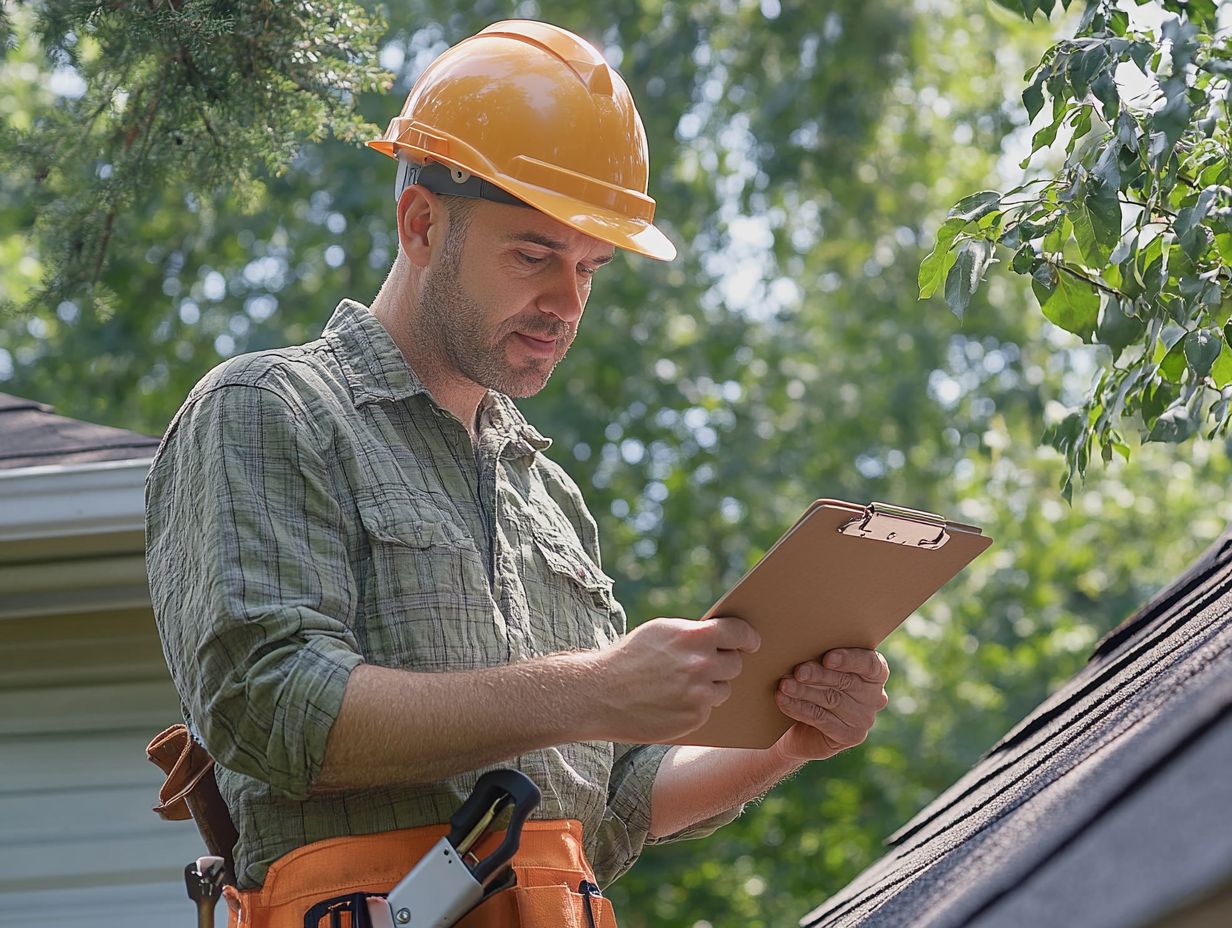
When selecting a home inspector, consider factors like certification, experience, and the overall inspection process. This ensures that you’re making smart choices as a buyer.
Ask about the inspector s report style and how familiar they are with local building codes and common issues in your area. Understanding their inspection process can reveal what aspects they prioritize.
Are they willing to walk you through their findings? Do they encourage questions and offer clear explanations? These details can significantly impact the quality of the inspection and the recommendations provided.
Ultimately, making a well-informed choice gives you the power to move forward with confidence or negotiate necessary repairs before sealing the deal on your new home.
What to Do if an Error is Found
When you uncover an error during a home inspection, it’s crucial to take the right steps to address and resolve the issue. For guidance on this process, check out how to ensure a fair home inspection. Don’t wait!
This not only ensures transparency but also paves the way for effective negotiations with buyers or facilitating necessary repairs by the seller.
Steps for Addressing and Resolving Issues
Addressing and resolving the issues highlighted in the inspection findings requires a meticulous review of the inspection report. This allows you to determine the best course of action for both buyers and sellers.
Start by analyzing each identified issue to gauge its severity. Decide if it poses a safety risk or merely requires cosmetic adjustments. Once you ve evaluated the findings, prioritize potential home repairs based on urgency and impact.
- For example, a leaking roof demands immediate attention, while minor paint chips can likely be postponed.
You can also use these findings in negotiations. As a buyer, you might suggest repairs or price reductions. As a seller, addressing significant problems upfront can create goodwill and pave the way for a smoother transaction.
Frequently Asked Questions
Finding a great home inspector can be a game-changer! It can save you time and money.
What are common home inspection errors and how can I avoid them?
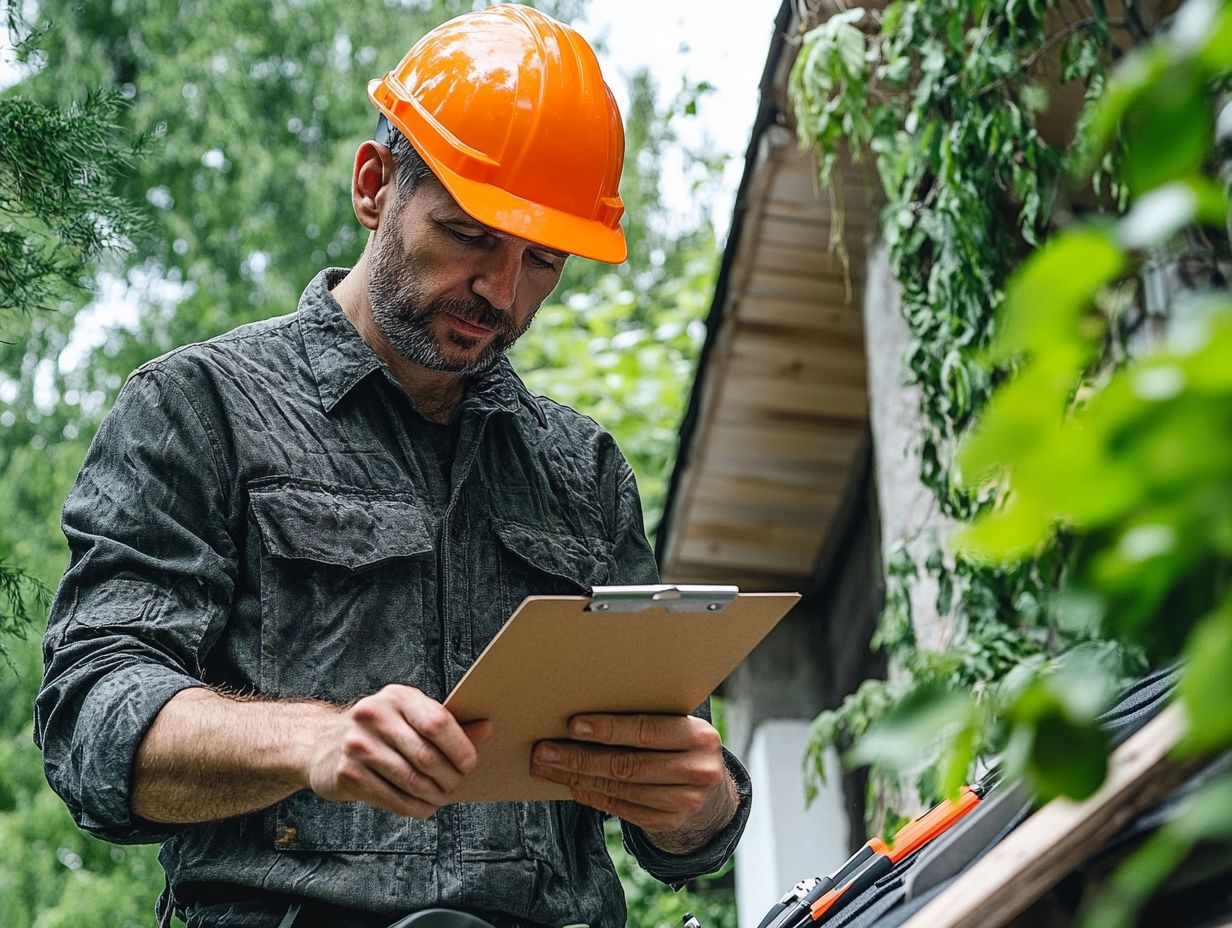
Common home inspection errors can include missing issues, incorrect evaluations, and overlooking important details. To avoid these errors, it is essential to choose a qualified and experienced home inspector. Additionally, you should thoroughly research the inspector and their company, and consider how to get the most out of your home inspection by asking for references and credentials.
How can I ensure my home inspector is qualified and experienced?
Research your home inspector’s qualifications. Look for relevant licenses and certifications.
Ask for references from past clients. Read reviews on their website or other platforms.
What should I do if I think my home inspector missed something?
Discuss your concerns with the inspector first. If you’re unsatisfied, get a second opinion from another qualified inspector.
Addressing issues before making a final decision is crucial.
What areas are often overlooked during a home inspection?
Commonly overlooked areas include the roof, electrical systems, and plumbing. These spots may be hard to access or show no obvious signs of damage.
Choosing a thorough and experienced inspector is important.
What red flags should I watch for during a home inspection?
Look for signs of water damage, mold, cracks in the foundation, and hazardous electrical systems. Address these issues quickly, and consult a professional if needed.
Can I attend the home inspection and ask questions?
Yes! As a buyer, you can attend the inspection and ask questions. This helps you understand potential issues better.
Just be sure to respect the inspector’s space and let them do their job without interruption.

